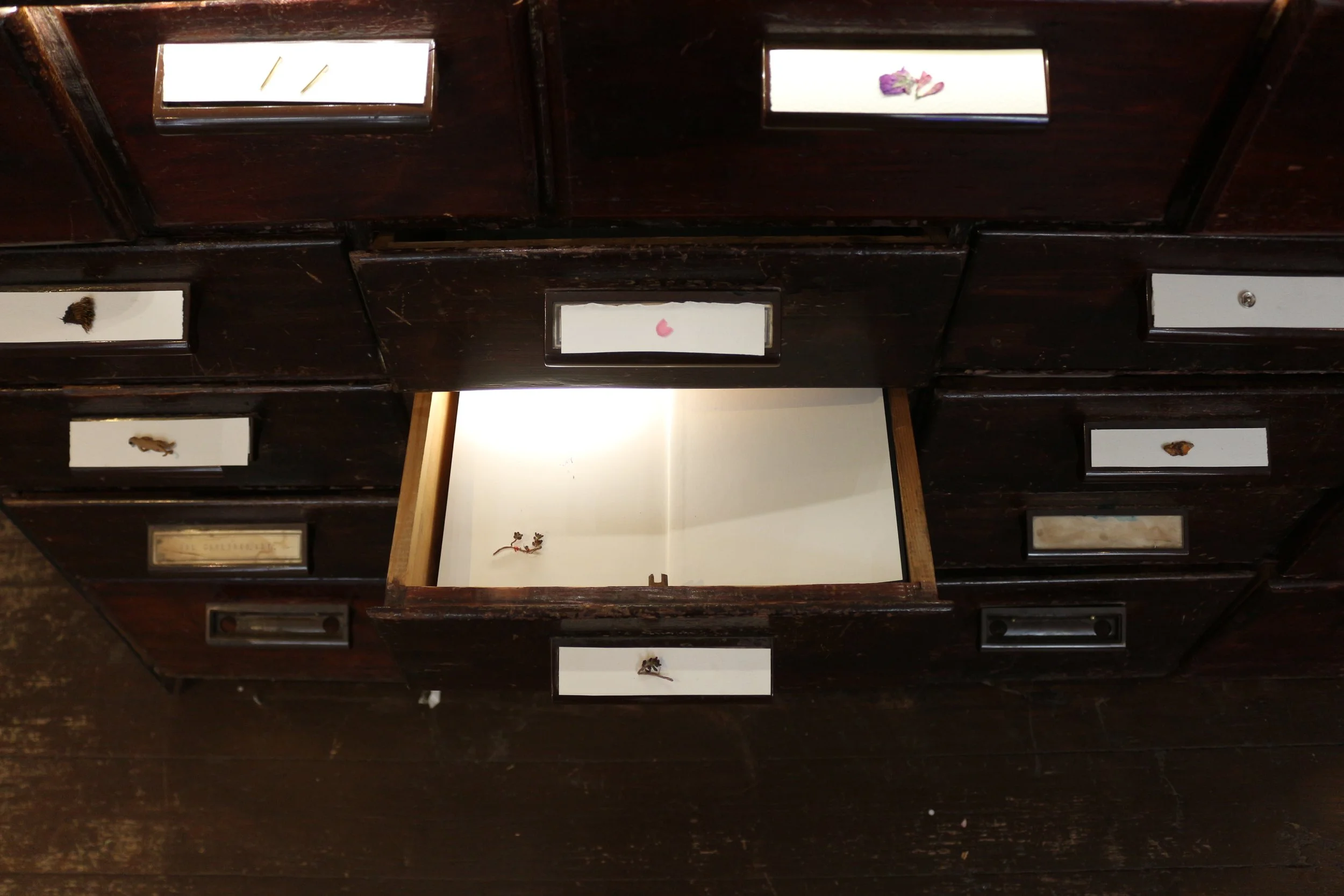
PARATEXT
Solo Exhibition | 2025
Dedication
I dedicate this work to all who disappear, then return, and disappear again.
To all who know by heart the detailed shape of southern clouds at dawn,
the number of creases on the back of their left hand,
and the exact hue of oil stains
on the living room table.
To those who have been forgotten, and had no one left to testify they existed.
To those who learned and memorized
a new language,
who forgot an old one,
who forgot how to speak in past tense,
who forgot how to say in English the words “uprising,” “yearning,” or “a wrench.”
I want to replace these forgotten words with small insects I found in the forest,
with a Russian folk melody,
or with other words like “wax,” “שמש,”
“Violeta Parra,” “the number 13.”
☽ ☾
Paratext approaches memory not as a container of facts, but as a space of linguistic instability.
It begins with a double movement: not remembering the thing itself, but remembering that there once was a word.
Like Funes the Memorious in Borges’ story, who recalls every leaf in detail and rejects numbers for being too general.
So too here, ordinary words become impossible. They are not erased, but replaced with objects, sounds, alternate numbers, a melody, a dried flower.
A dedication, in this context,
is a formal act of encoding:
An attempt to inscribe a private emotion within a book, perhaps the most intimate object still in use.
It is a promise to remember, or a call for someone else to carry the memory forward.
This act serves, perhaps unknowingly,
as a technology of memory:
A paratext that performs an action; a gesture toward a specific reader,
a fleeting illumination of their anonymity, a quiet signal of belonging.
Sometimes, it becomes the only remaining testimony that someone ever existed.
This is memory as fragment - an experimental creation of another language,
a language that breaks from its representational frame and seeks another way to remember what can no longer be remembered.
The work proposes an
architecture of forgetting:
not a reconstruction of what is missing, but a different organization of absence, like a translation with no origin.
Memory here undergoes transformation into shape, letter, sound, material, duration.
Forgetfulness, then, is not a gap in memory - it is a different substance.
Not absence, but a change in state.
What has been forgotten has not vanished;
it has simply become inaccessible in its previous form.
It settles elsewhere. It is converted.
This work does not lament the absence of memory,
it only offers it a different body.
Such transformation is not an artificial preservation of the past,
but a poetry of what is no longer precise.
P A R A T E X T
Curated by Mor Efrony
as part of the Mørkt Gjestebud series,
at the wonderful bookshop Cappelens Forslag.
(Bernt Ankers gate 4B, 0183 Oslo)
Video & Photos : Gal Amoyal










